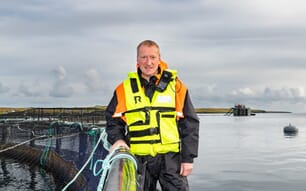The observers will collect scientific information about the health of fish stocks and the amount of incidental bycatch of marine mammals and other protected species.
This information is used to manage fish stocks and protect marine resources domestically and internationally, through organizations such as the International Commission for the Conservation of Atlantic Tunas.
The collaborative training program is designed to strengthen international cooperation in fisheries management.
"The training is an opportunity to work with our partners in Senegal to share what we have learned from three decades of fishery observer programs," said Mary Glackin, acting under secretary of commerce for oceans and atmosphere and acting NOAA administrator. "The Senegal program follows a successful training in Ghana last year, and NOAA hopes to offer training programs in other West African nations this fall."
Increased international cooperation on fisheries management is essential to stopping global overfishing and illegal, unreported and unregulated fishing. The Magnuson-Stevens Act calls for NOAA’s Fisheries Service to help nations improve monitoring and compliance with international fishing rules designed to rebuild stocks to help local and national economies.
The training will focus on identification of marine mammals, sharks, sea turtles and other species as well as observer safety. NOAA will provide equipment and training materials to Senegal for the program and for future training.
The U.S. Navy will transport observer equipment and supplies aboard the USS Nashville, assisting with navigation, communication and safety training, as well as providing translators in the Francophone country. Some observer training will be done on board the ship.
NOAA understands and predicts changes in the Earth’s environment, from the depths of the ocean to the surface of the sun, and conserves and manages our coastal and marine resources.
NOAA Share Knowledge with Senegal Fishermen
SENEGAL - NOAA scientists will travel to the west African nation of Senegal this week to train government officials and university students to be marine resource observers on fishing boats.




